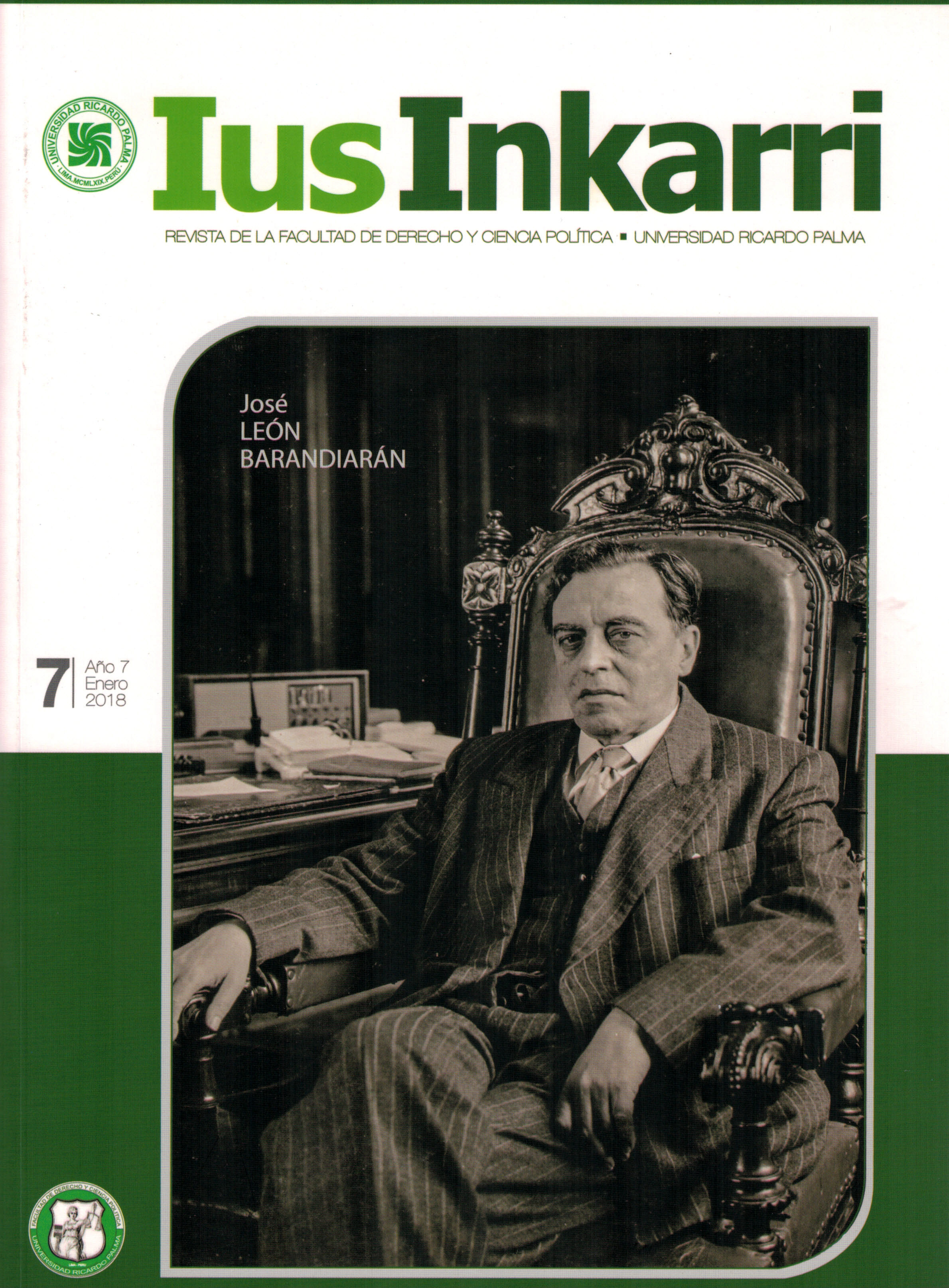Labyrinths of peruvianness
DOI:
https://doi.org/10.31381/iusinkarri.vn7.2026Keywords:
history, ideology, cultural reality, social reality, republicAbstract
The essay aims to show the social and cultural reality of Peruvian society in the historical context, in which the loss of horizon, the consequences of the dialectical contradictions of our ideologies of the past and that is still repeated in our ‘public scene’, which We still have a way lost in the triggers, a clear example of this is that we have a society that bifurcates to carry out a project of the Republic. What is intended in this analysis is to sustain some possible solutions to our problems, that for the lost time it would seem that we should invent and create ex nihilo, to find a place to which we should go and gather all the forms of Peruvianness, from that all stories can be told and all forms of life shared, as if they were the folds and threads of a great fabric in which all attend not to wield their truths, loyalties and cultural beliefs, but to liberate their differences by stripping them of any dogmatism or ideology, something different that perhaps seems impossible to achieve, but certainly thinkable, imaginable and desirable. In saying this, I intend to suggest that the history of their acts, revolutions and rebellions, as in other aspects, be guide to the formation of a shared memory.
Downloads
References
Ankersmit, Frank, Giro Lingüístico, teoría literaria y teoría histórica, Prometeo Libros, Buenos Aires, 2011.
Basadre, Jorge, La serie de probabilidades dentro de la emancipación peruana, en Carlos Contreras y Luis Miguel Glave.
Bloch, Marc, Apologia della storia, citado por Carlo Ginzburg, El hilo y las huellas: Lo verdadero, lo falso, lo ficticio, FCE, Buenos Aires, 2010.
Benjamin, Walter, Tesis de la filosofía de la historia.
Rocquet, Claude–Henri, Mircea Eliade, La prueba del laberinto, Ediciones Cristiandad S.L., Madrid, 1980.
Ibáñez Nogerón, Cosme, Aproximación al laberinto: Una panorámica, Universidad de Granada – Tesis doctoral, Facultad de Bellas Artes Alonso Cano, 2010.
Deleuze, Gilles, El pliegue: Leibniz y el Barroco, Ediciones Paidós Ibérica, S.A., Barcelona, 1989.
García Miranda, Juan José, Literatura oral y popular de Perú, IPANIC, Ecuador, 2006.
Gorriti, Gustavo, Sendero: Historia de la guerrilla milenaria en el Perú, Editorial Planeta Perú S.A., Lima, 2017.
Gutiérrez, Gustavo, Teología de la liberación.
López de Gómara, Francisco, Hispania Victrix, citado por Ricardo Herren, La conquista erótica de las Indias, Editorial Planeta-De Agostini, Barcelona, 1997.
Mendívil, José, Lo imaginario del ‘nosotros los peruanos’ en las Tradiciones de Ricardo Palma, publicado en la Revista Ius Inkarri, N° 6, enero 2018, revista de la Facultad de Derecho y Ciencia Política, Universidad Ricardo Palma.
Majluf, Natalia, Escultura y espacio público: Lima 1850-1879, IEP Ediciones, Serie Historia del Arte, Lima, 1994.
Majluf, Natalia, Ruptura y continuidad: Tres libros sobre arte y literatura, en Ricardo Estabridis, Nuestra memoria apuesta en valor: Patrimonio cultural del Perú, BCP, Ausonía S.A., Lima, 2014.
Marramao, Giacomo, Poder y secularización, Ediciones Península, Barcelona 1989. Mc Evoy, Carmen, La utopía republicana: Idealidades y realidades en la formación de la cultura política peruana (1871-1919), Fondo Editorial de la PUCP, Lima, 2017, p. 19.
Navarrete, Federico, Hacia otra historia de América: Nuevas miradas sobre el cambio cultural y las relaciones interétnicas, Instituto de Investigaciones Históricas, UNAM, México, 2015.
Parkinson Zamora, Lois, La mirada exuberante: Barroco novomundista y literatura latinoamericana, Bonilla Artigas Editores S.A., México, 2011.
Rénique, José Luis, El Instituto de Estudios Peruanos: 50 años buscando nación, un ensayo de historia institucional, en Martín Tanaka (editor), 50 años pensando el Perú: Una reflexión crítica, el IEP 1964- 2014, IEP, Lima, 2014.
Steiner, George, La muerte de la tragedia, FCE, Ediciones Siruela, México 2012.
Sloterdijk, Peter, Crítica de la razón cínica, Ediciones Siruela S.A., Madrid, 2003.
Scarlett O’Phelan, El mito de la ‘independencia concedida’: los programas políticos del siglo XVIII y del temprano XIX en el Perú y Alto Perú, 1730-1814, en el libro de Carlos
Contreras y Luis Miguel Glave (editores) La independencia del Perú: ¿Concedida, conseguida, concebida?, IEP, Lima 2015.
Shaw, Edward, Pintura contemporánea latinoamericana, Santiago de Chile, 2011.
Steyerl, Hito, Los condenados de la pantalla, Caja Negra Editora, Buenos Aires 2014, p. 23.
Thorne, Carlos, Mañana Mao, en su libro de cuentos País violento, publicado por la Editorial Universitaria de la Universidad Ricardo Palma, Lima 2017.
Toynbee, Arnold y Deleuze, Gilles citados en Historiografía posmoderna: Conceptos, figuras, manifiestos, de Luis de Mussy y Miguel Valderrama, RIL Editores, Santiago de Chile 2010.
Vargas Llosa, Mario, Szyszlo en el laberinto, 1991.
Downloads
Published
How to Cite
Issue
Section
License
Copyright (c) 2018 José Mendívil Nina

This work is licensed under a Creative Commons Attribution 4.0 International License.













